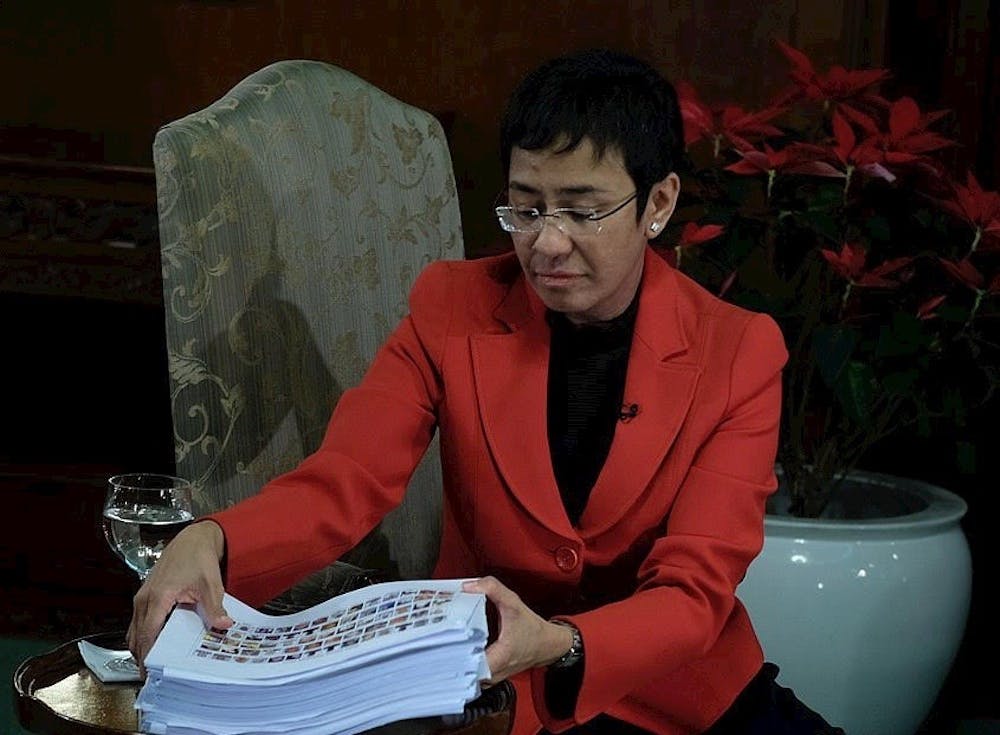Journalist Maria Ressa ’86 was arrested last week on the charge of “cyber-libel.” Ressa, the founder and CEO of the online news organization Rappler, was named one of “The Guardians,” the collective recipients of TIME’s 2018 Person of the Year award.
On Feb. 13, Philippine National Bureau of Investigation (NBI) officials arrested Ressa at the Rappler headquarters. The charges were related to an investigation published by Rappler on May 29, 2012.
The subject of the investigation, Wilfredo Keng, filed a formal affidavit in early 2018 and the Philippines Department of Justice (DOJ) recommended an indictment of Rappler early this February.
Ressa posted bail the next day, as the timing of her arrest in the late afternoon prevented same-day bail.
The law cited in the arrest is the Cybercrime Prevention Act, which was passed in Sept. 2012. Some offenses expressly outlawed by the bill are cybersex, identity theft, and libel.
Keng alleges that since the article was updated in 2014, this law applies retroactively to the Rappler investigation.
Ressa’s arrest followed shortly after she was arrested last Dec. on alleged tax code violations.
Rappler responded to these developments with the statement that “we will continue to tell the truth.” The Daily Princetonian Editorial Board stated its support for Ressa’s journalistic efforts on Tuesday, Feb. 19.
The United Nations (UN) published a statement on Twitter calling “for an independent review of all charges against Maria Ressa.”
In a press briefing note, the UN added that these arrests are “widely viewed as efforts to silence Rappler’s independent investigative reporting and critical voice,” and warned that “attempts to intimidate or muzzle independent news sources has [sic] a serious effect on freedom of opinion and expression in general.”
Amnesty International has also decried the arrest, calling it a “trumped-up libel charge.”
When asked about Ressa’s case, Philippine President Rodrigo Duterte denied involvement. Ressa has been critical of Duterte and his regime’s policies, publishing investigations on sensitive topics such as Duterte’s controversial Philippine Drug War. Both Ressa individually and Rappler as an organization have been met with hostility from the Philippine government.

In addition to having been named one of TIME’s Persons of the Year, Ressa has also received numerous awards in journalism, including the Golden Pen of Freedom Award and Knight International Journalism Award in 2018, as well as the Democracy Award in 2017.
Ressa graduated from the University in 1986 with an A.B. in English. Afterwards, she continued her studies in the Philippines, where she was born, and became a journalist there. Before helping to found Rappler, she worked for CNN, and she has authored several books.








